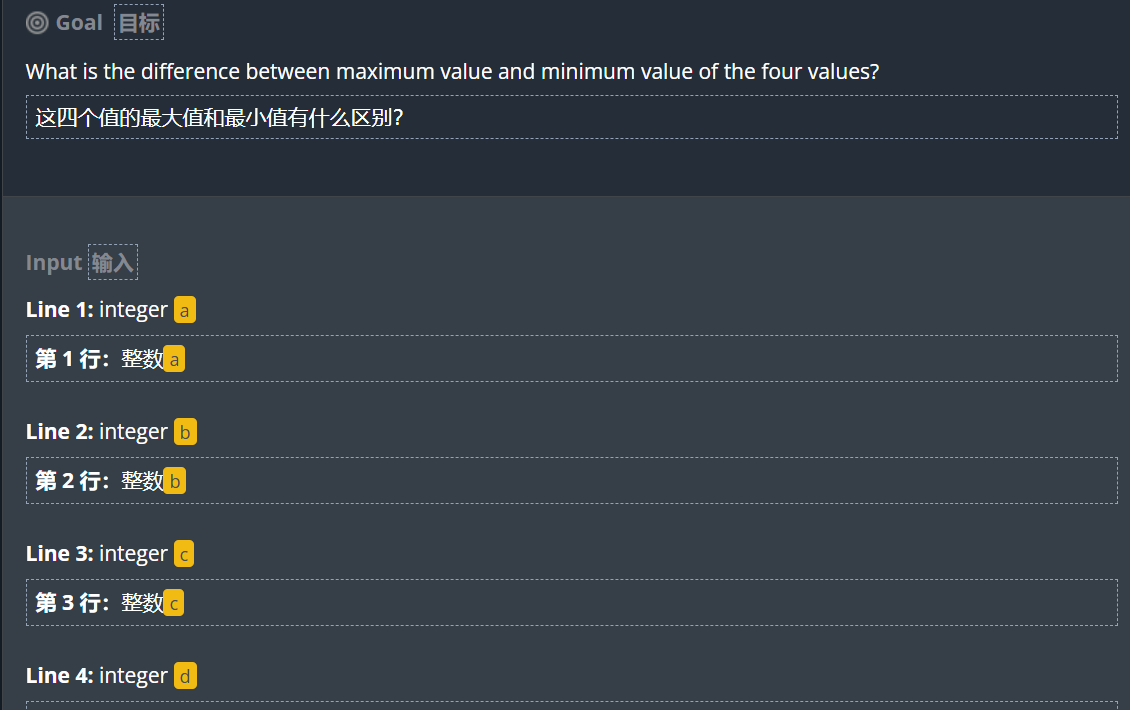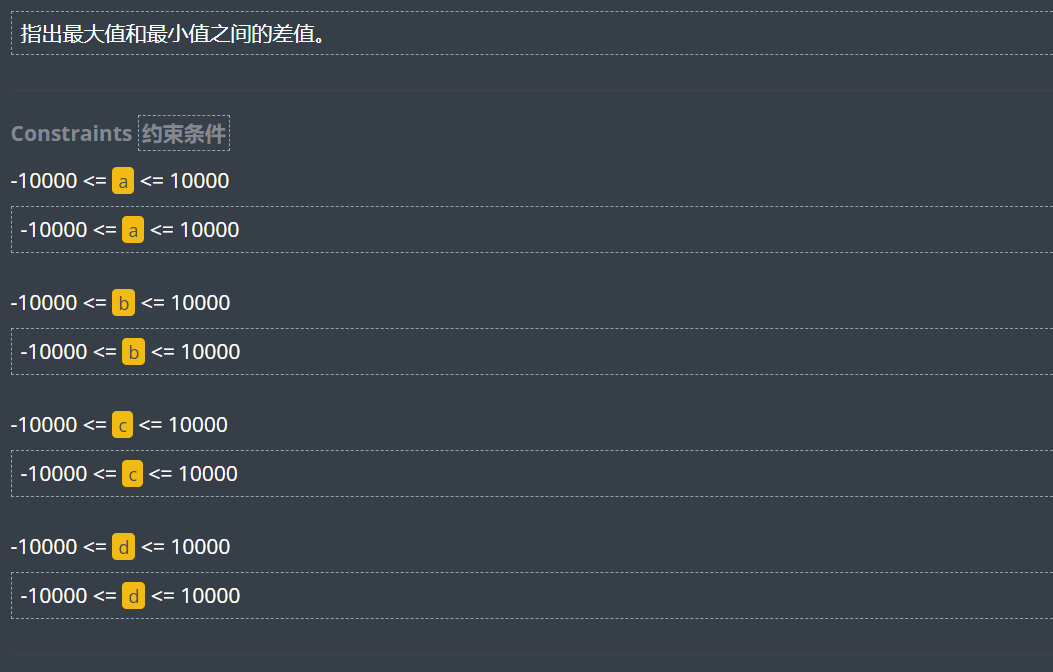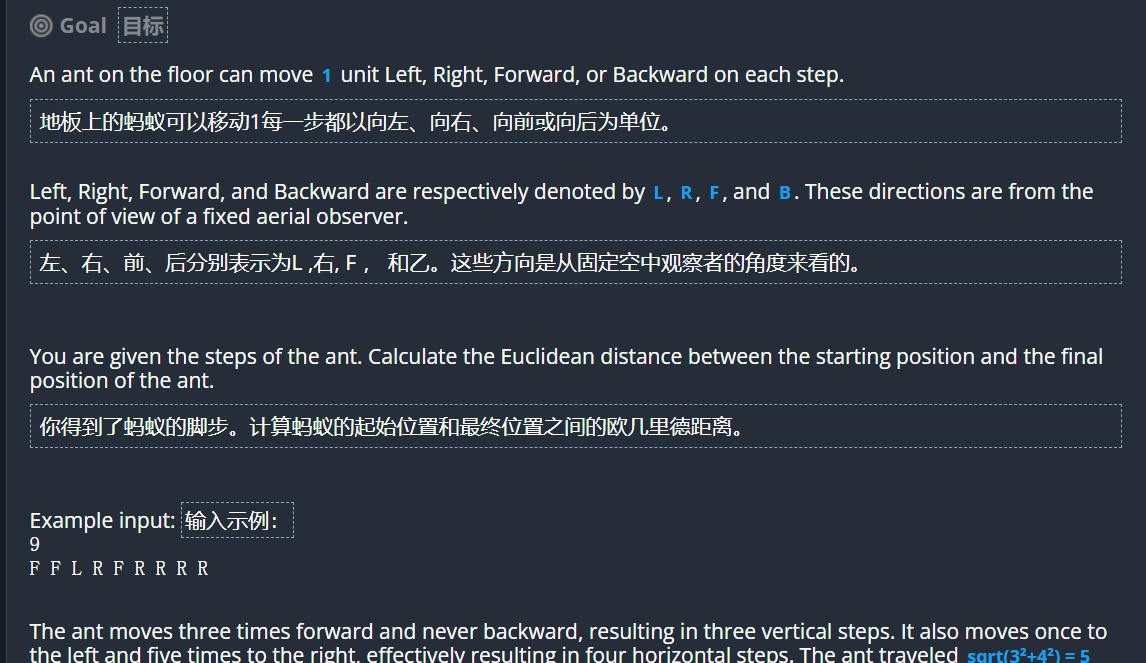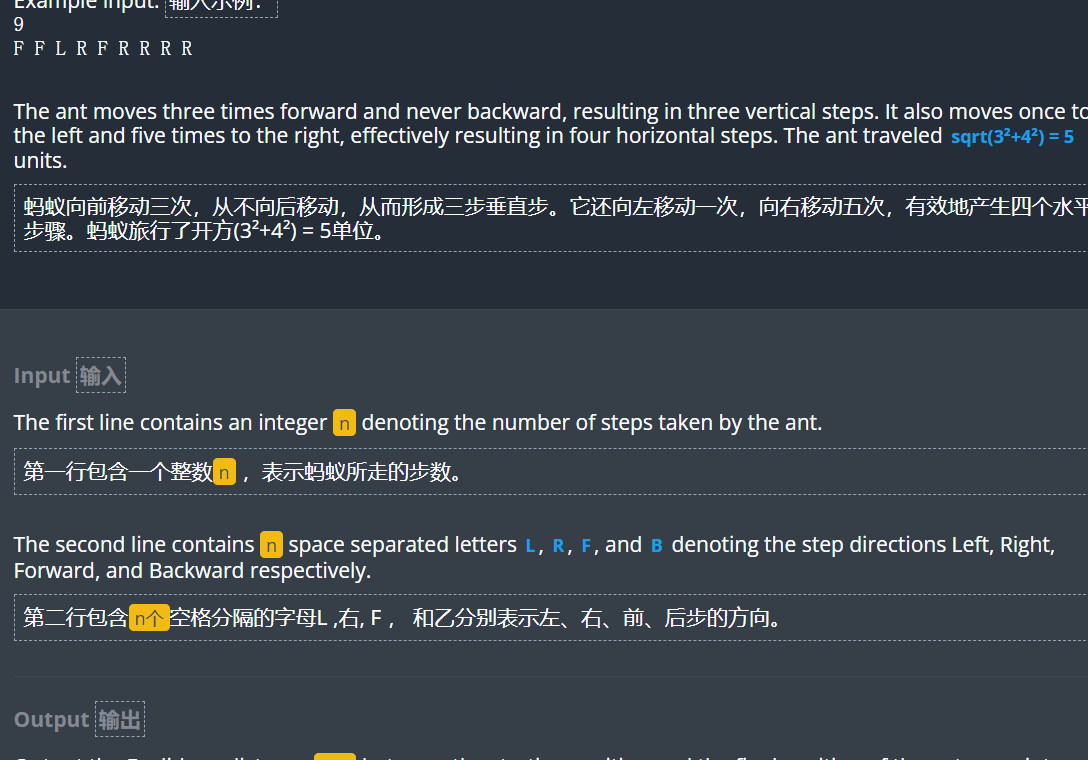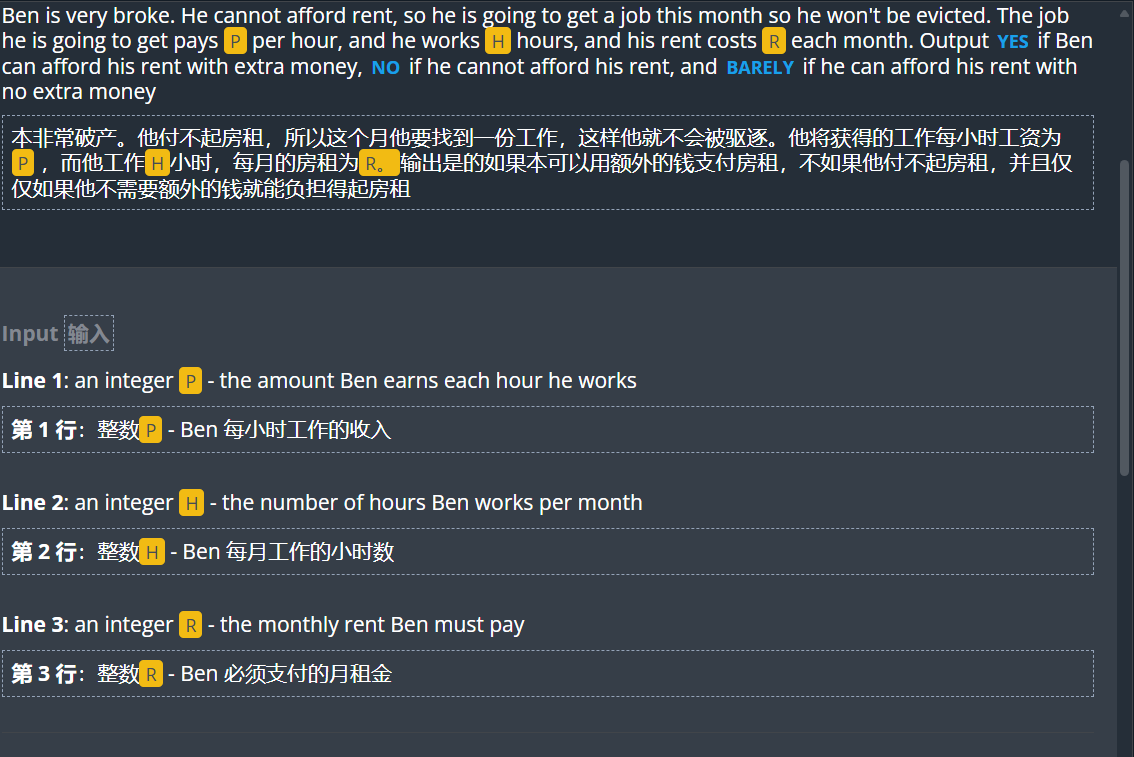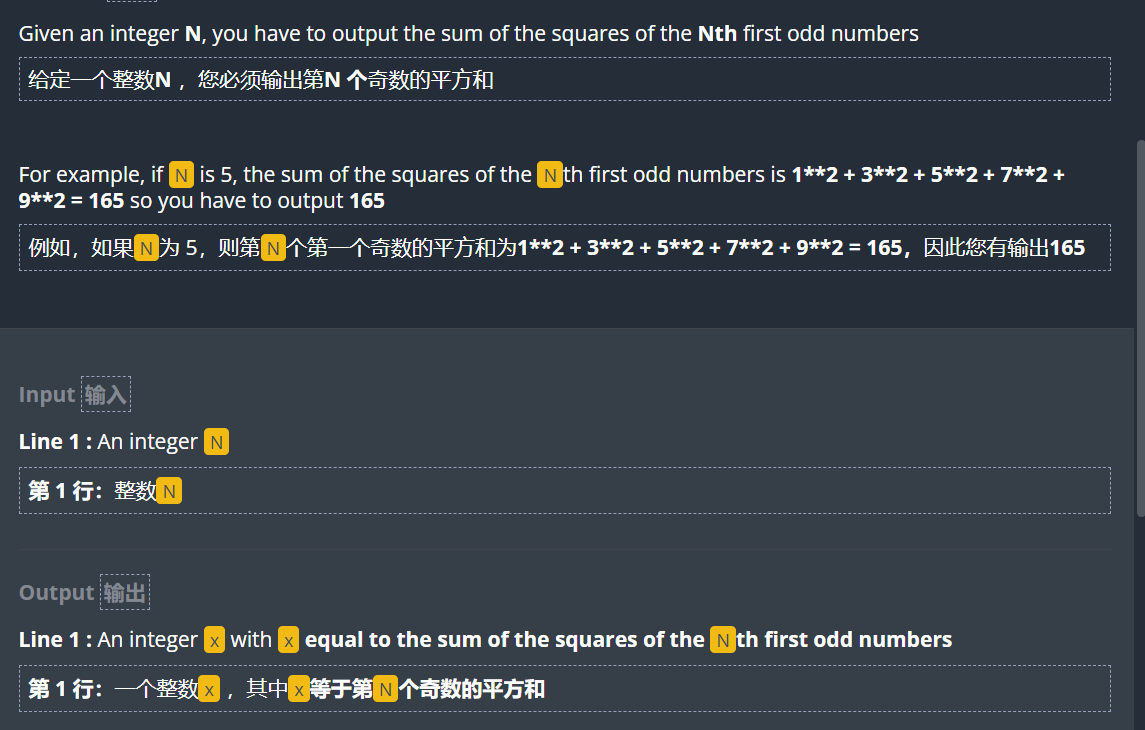C/C++教程
【CodinGame】趣味算法(教学用) CLASH OF CODE -20240802
本文主要是介绍【CodinGame】趣味算法(教学用) CLASH OF CODE -20240802,对大家解决编程问题具有一定的参考价值,需要的程序猿们随着小编来一起学习吧!
@[toc]
正文
最大最小值
import math import sys # Auto-generated code below aims at helping you parse # the standard input according to the problem statement. a = int(input()) b = int(input()) c = int(input()) d = int(input()) mylist = [] mylist.append(a) mylist.append(b) mylist.append(c) mylist.append(d) print(max(mylist) - min(mylist))
移动距离
import sys
import math
# Auto-generated code below aims at helping you parse
# the standard input according to the problem statement.
n = int(input())
x,y = 0,0
for step in input().split():
if step == "L":
x -= 1
elif step == "R":
x += 1
elif step == "F":
y += 1
elif step == "B":
y -= 1
pass
print(int(math.sqrt(x**2+y**2)))
简单判断
import sys
import math
# Auto-generated code below aims at helping you parse
# the standard input according to the problem statement.
p = int(input())
h = int(input())
r = int(input())
if p*h>r:
print('YES')
elif p*h==r:
print('BARELY')
else:
print('NO')
奇数平方和
import sys
import math
# Auto-generated code below aims at helping you parse
# the standard input according to the problem statement.
n = int(input())
x = 1
sum = 0
for i in range(n):
sum += x**2
x += 2
pass
print(sum)
写在最后
欢迎技术类的问题到这里提出,我会逐个解答
END
本文由博客一文多发平台 OpenWrite 发布!
这篇关于【CodinGame】趣味算法(教学用) CLASH OF CODE -20240802的文章就介绍到这儿,希望我们推荐的文章对大家有所帮助,也希望大家多多支持为之网!
您可能喜欢
-
Nacos多环境配置学习入门12-27
-
Nacos快速入门学习入门12-27
-
Nacos快速入门学习入门12-27
-
Nacos配置中心学习入门指南12-27
-
Nacos配置中心学习入门12-27
-
Nacos做项目隔离学习入门12-27
-
Nacos做项目隔离学习入门12-27
-
Nacos初识学习入门:轻松掌握服务发现与配置管理12-27
-
Nacos初识学习入门:轻松掌握Nacos基础操作12-27
-
Nacos多环境配置学习入门12-27
-
阿里云ECS学习入门:新手必看教程12-27
-
阿里云ECS新手入门指南:轻松搭建您的第一台云服务器12-27
-
Nacos做项目隔离:简单教程与实践指南12-27
-
阿里云ECS学习:新手入门指南12-27
-
Nacos做项目隔离学习:新手入门教程12-27
栏目导航


